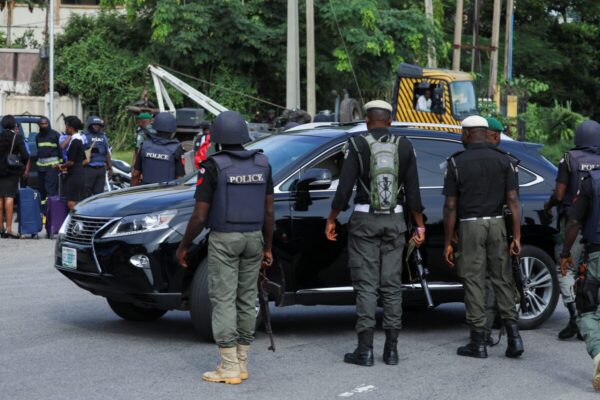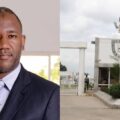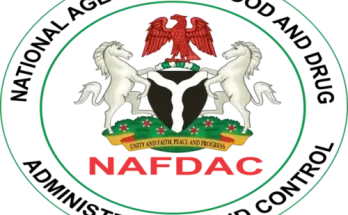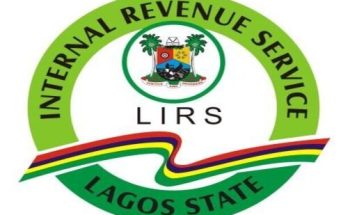By Chiagoziem Abosi & Bababunmi Agbebi
Edited by Sunkanmi Adewunmi
President Bola Ahmed Tinubu has issued a fresh directive ordering the withdrawal of police officers currently assigned to provide personal security for VIPs across the country. This directive emerged from a high-level security meeting held in Abuja with the heads of the police, army, air force and the Department of State Services (DSS).
Under the new arrangement, police personnel attached to politicians, businessmen, traditional rulers and other VIPs are to be recalled and redeployed to core policing duties. According to a statement by Special Adviser on Information and Strategy, Bayo Onanuga, the aim is to significantly increase the presence and visibility of the police in communities, particularly in remote and underserved areas where police manpower is critically low.
To ensure that VIPs who require protection are not left without options, the government has directed that such individuals should henceforth obtain armed protection from the Nigeria Security and Civil Defence Corps (NSCDC) instead of the police.
This decision comes at a time of heightened security concerns nationwide. In response, President Tinubu has also approved the recruitment of 30,000 additional police officers and is working with state governments to upgrade training facilities in order to strengthen policing capacity.
Present at the Abuja meeting were the Chief of Army Staff, Lt. Gen. Waidi Shaibu; Chief of Air Staff, Air Marshal Sunday Kelvin Aneke; Inspector-General of Police, Kayode Egbetokun; and DSS Director-General, Tosin Adeola Ajayi.
Why This Shift Matters
● Refocusing Police Resources: Tinubu’s move is part of a broader plan to strengthen policing in underserved and remote communities. Onanuga pointed out that many parts of the country lack enough police officers, making it hard to protect ordinary residents.
● Boosting Police Strength: To make up for the personnel shift, Tinubu has approved the recruitment of 30,000 additional police officers.
● Strengthening Training: Alongside hiring more officers, the federal government says it’s working with states to upgrade police training facilities nationwide.
Why This Announcement Keeps Reappearing
This is not the first time a Nigerian president or Inspector-General of Police has ordered the withdrawal of police personnel from VIPs. Similar announcements were made under previous administrations. The issue persists largely because of several systemic and political factors:
- VIP Security Withdrawal Is Rarely Fully Enforced
Although directives are often issued, actual implementation has historically been inconsistent. The police hierarchy sometimes faces political pushback or unofficial pressures from influential individuals who insist on retaining their police details. - Strong Culture of Political Entitlement
Over the years, many VIPs have come to regard police protection as an automatic entitlement even when they hold no public office. This entrenched culture makes enforcement difficult. - Weak Monitoring and Accountability
There is usually no robust tracking or auditing mechanism to ensure that officers withdrawn actually return to duty posts, nor to prevent VIPs from quietly re-securing police escorts through informal channels.
What This Could Mean for Nigeria’s Security Future
If implemented well, this directive could help address several persistent security challenges: - Better Coverage in Vulnerable Areas: More officers on the ground could translate to stronger patrols, faster response times, and improved intelligence gathering in places that often feel forgotten.
- Reduced VIP Entitlement: By removing the easy “police escort” option, VIPs may lose a security privilege that often felt symbolic of inequality in Nigeria.
- Reforming Policing Culture: A shift like this might nudge the police force to prioritize public duty over personal or political protection — but it will require sustained leadership and accountability.
Are We Sure This Time Will Be Different?
It is uncertain, but several factors could improve compliance this time: - The Security Situation Has Become More Urgent
Rising insecurity in rural communities increases the pressure on government to redeploy manpower urgently and to be seen to do so. - Larger Reform Package
Unlike previous announcements, this directive comes alongside:
- The recruitment of 30,000 new officers
- Planned upgrades of police training facilities
- A clear alternative security option via the NSCDC
This makes the directive appear more structured and less symbolic.
- High-Level Multi-Agency Involvement
The presence of the heads of the army, air force, and DSS at the meeting signals that the decision is part of a broader national security strategy, not an isolated police instruction. - Public Transparency
By announcing it openly, the government increases public expectation and pressure, making it harder for agencies to quietly backtrack.
Ultimately, adherence will depend on:
- Whether the police leadership is willing to resist political pressure
- Whether monitoring systems are put in place to ensure compliance
- Whether VIPs themselves cooperate or find ways to circumvent the policy
Until those structural issues are addressed, there is always the risk that the cycle of announcement → partial compliance → quiet reversal → new announcement will continue.








